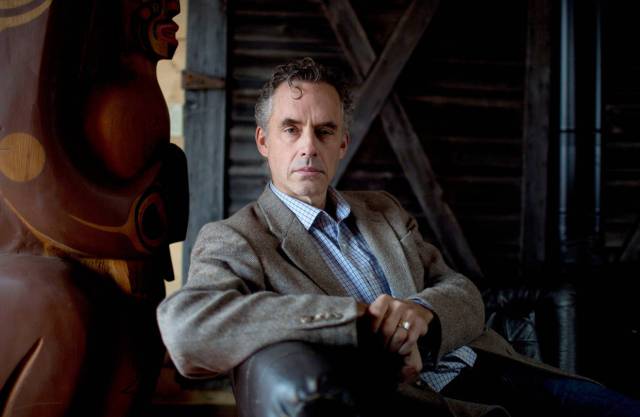This post examines elements of fandom as a form of idolatry, and considers how ethical systems may be bypassed, and false beliefs exposed, by ‘breaking the fifth wall’.
Readership: All
This article is outlined as follows.
- The Fragility of Man
- The Nature of Idols
- My Repentance from Fanhood
- The Falsehood of Fandom
- The Illusion of Fandom
- Deconstructing the Pseudo-Ethical Stance
- How Can Idols Be Dismantled?
- Conclusions
The earlier part of this post (1-5) describes how fandom lies somewhere between having a healthy respect for an influential figure, and pedestalizing them above their true spiritual position (i.e. idolatry). I feel it is important to make a clear distinction between them, so that we know exactly where the line is between having a ‘healthy’ regard, or an ‘unhealthy’ regard, for the person or ideology in question.
The latter part of this post (6-8) describes some applications of this distinction, and points out how an added degree of awareness will strengthen one’s Frame when interacting with someone who holds certain values or beliefs that are foreign to one’s own.
1. The Fragility of Man
In the comments under a previous post, The Objectivity of Offense Constitutes Respect (May 6, 2018), J.T. posed an interesting dilemma concerning how we should regard men who are held in high esteem, men who have become idols in the eyes of others.
“As Christians, we are supposed to show love to all, including our enemies. But a false teacher can do a great deal of harm to those he teaches. Hence it seems logical that exposing false teachers is showing love to the church. Furthermore, we cannot judge false teachers merely by the words they speak. Christ says it is by their fruits that we will know them. So I think there are some important questions worth pondering:”
- “Is it ethical to predict bad fruits of a teacher by extrapolating from an assessment of the man’s mind (i.e. his writing)… as Vox Day and others seem to believe they have the insight to do? Or is this disparaging a man’s character without cause?”
- “If one is confident he has identified a false teacher, is it necessary to show courtesy to that teacher? And if so, how does one show courtesy while warning his followers that he’s an enemy?”
“How do we distinguish between calling out false teachers for the good of the church and unfairly attacking a public figure for entertainment/publicity, etc.?”
The answer is simple, yet profound. If one thinks of the man in question as mortal flesh and bone, while yet at the same time, made in the image of God, then he cannot esteem him to be a projection of one’s own psychological attributes.
This is the paradigm busting magic of believing in Christ Jesus, because Jesus was perfect. All other beings have ‘areas to be improved’. So in dealing with any particular man, we must recognize the work that Christ is doing in him, to bring him towards completion. In not doing so, we would fail to recognize his spiritual disposition. Those who believe that a man is wholly complete, and therefore qualified to take the form of an idol (or Christ himself, which is a blasphemy), are discounting the grace of God through Christ’s sacrifice.

2. The Nature of Idols
When a man is spiritually broken, that brokenness propels him to fill that void in any way he can, and then he is faced with a choice: (1) to continue suffering in a broken state, (2) to turn to idols for a temporary anesthesia, or (3) turn to Jesus for healing and wholeness.
As commonly regarded by the average person, idols appear to come in various forms, be it superstars, prized possessions, an intense self-centered desire, an ego fixation, or the classic carved image of antiquity. But in the spiritual sense, idols are none of these. Instead, idols are figments of the mind and heart – figments which are believed to fulfill some missing aspect of one’s existence, and perhaps do, in some diminished fashion.
The superstar, author, actor, philosopher, hero, HB10 woman, or carved image, is merely an object which gives expression to the true nature within, and thereby improvises a temporary ‘fix’ to the brokenness.

But this expression is not full, nor true, and that is what makes idolatry debasingly evil. It only becomes full and true when the Holy Spirit fulfills and heals that broken part of the man. When one is made complete in Christ, the better nature of the regenerated man, that whom God made him to be, and intended him to become, emanates from within the man himself, and is no longer vicariously experienced through the adoration of the idolatrous object.
“But when that which is perfect has come, then that which is in part will be done away.” ~ 1st Corinthians 13:10 (NKJV)
But just as a husband is ready to dismiss an adulterous wife, as long as a man clings to his idols, the hand of God will not move towards his re-creation. Thus, it is imperative that idols be addressed and dealt with.
3. My Repentance from Fanhood
I have a confession to make, too. When I was younger, U2 was my favorite band. I bought all their albums, and I listened to their music every day. Most of my friends did too. One of the things that solidified my fanhood was their outspoken profession of Christianity. But then, in the early 90’s, this rock band were arrested for possession of cannabis, which was still illegal at that time. When I heard this news, my esteem for the group plummeted, but I still bought one more album after that, entitled, Pop. This album was so bad, that I have never purchased another album since then. I recognized that they had changed. They no longer inspired me.
At that time, these developments prompted me to recognize that the men in U2 were not as I had imagined. Looking back, I have come to understand that they had not changed, and I had not changed either. I was merely confronted with the fact that my imagination and inspiration were separate from the reality that produced it. In other words, I did not share the same beliefs and values as the men I once idolized, and this discovery ‘depedestalized’ them in my eyes.
Lately, their support for gay marriage (2015), and their endorsement of abortion (2018), has further engrained in my mind the dangers and disappointments that come with putting one’s hopes in man. Now, I see Paul, David, Adam and Larry just as the flesh and bone that they are – mere men who are talented musicians and stage performers, but who are below average in most other respects. I still have an affection for them as individuals who have added joy and good memories to my youthful life, but the wonder and fascination of their larger-than-life glory has since faded away. Looking past the humanity of these men who are made in the image of God, the spiritual reality is that their profession of Christianity is probably a falsehood, much like cultural Churchians imagine themselves to be true believers. Furthermore, I speculate that they are most likely converged at the highest level. They sold out the Holy Spirit, in exchange for a renewable pass to stardom. This is all very clear to me now, but it was not discernible to my teenage self in 1987.

4. The Falsehood of Fandom
Simply gathering a fan base does not make one a very influential leader. A true leader needs to be intricately ‘connected’ to his following. Some kind of feedback loop needs to be present. For example, Prof. Jordan B. Peterson would need some way to ‘correct’ his fans whenever they fail to get the right point. But if this should happen, then many of his fans would wake up to face the incongruences of their own beliefs. This would be a good thing, but it would also reduce his following. There is also the logistical barrier – there is a limited number of followers that one person can mentor.
In his post, Fandom is Idolatry (May 7, 2018), Dark Brightness (via Bruce Charlton), illustrated how fandom does not constitute a base under real leadership, but it is merely a projection of the idols one worships onto an object or a persona. Key quotations follow.
“[Fandom’s] appetite for novelty, and its mass nature, always corrupts; and always corrupts in the direction of prevalent mainstream ideology.”
“Other fandoms are closely analogous – revealing that this is a property of fandom rather than being related to specific authors or their work.”
“What Peterson does — ironically, making a new fandom — is disassemble the pseudo ethics of the TruFan, who divides the world into those whom agree with them, and those who do not. Often on trivia. Often on what they project onto the author.”
“[Newman et al. feminists] use emotion, lies and projection as rhetorical weapons. Their fandom is a lie. It is no cruelty to point this out, but a mercy.”
“Fandom, in its current iteration, is toxic. This toxicity is encouraged by those who would make money out of those who are unhappy, not by directing them towards those activities which will make them happy and fulfilled, but by encouraging them to dig a basement in the hell of their making.”
We are easily convinced that this is true for the fans of feminism and other ideologies, such as Marxism, but DB implies that the nature of fandom relegates Peterson into a similar category. No matter if what he professes is true or false, even if he encourages young men to pursue virtues such as love and respect, fans will interpret the message through the blue-pill lens of their own non-shared environment, which inevitably will contain sundry idols.
For instance, Peterson’s example could actually be enabling some of his fans to develop viewpoints and debate tactics that would allow them to lazily demand love and respect from others, while still failing to integrate this habit into their character, and they would thereby become further complacent about their own preconceived notions of things.
This dynamic might appear within any kind of fandom that is lacking leadership feedback.
5. The Illusion of Fandom
Putting Peterson on the proverbial pedestal is an expression of fandom. As such, opinions of Peterson (or any other public figure like him) are a reflection of a person’s own values and beliefs, and not necessarily an accurate representation of the man himself. Only the man in question can speak for himself, and the contents of one’s heart spill out of the mouth. This is true for the star, the fan, and the critic.

Ass such, putting Peterson on a pedestal so that one can knock him off of it, is also a pseudo-expression of fandom, since it is also a projection of one’s own belief system. To offer a lighthearted and somewhat spurious example, if SF/Vox/DB made a public effort through argumentation to knock U2/Peterson/Tolkien off a pedestal that they had created in their own minds, then the power of their respective arguments are determined by whether they can convince themselves and/or others that the underlying philosophical pillars of the entities in question are either true or false. But the ‘truthiness’ appearance of the argument is determined by the belief systems of the particular people involved in the construction of the argument.
The strength and value of their arguments depend largely on whether their readers identify with the same values (or idols) as they do. This is largely what DB terms ‘TruFandom’. In essence, TruFandom forms when stars create an argument or other expression that is useful to those who think like they do. But these arguments and expressions have no value in destroying the culture of idols, and in fact rather, they support the same. The real challenge is in convincing others to adopt the same values and beliefs that we do (which are presumed to be truth), and do so in the faith that what we believe is universally true, everlasting, and useful in building God’s Kingdom.
6. Deconstructing the Pseudo-Ethical Stance
Peterson’s claim to fame can be found in his ability to take the stance of an outside observer, who is able to see the difference between those who think like he does, according to the Righteousness vs. Guilt (RvG) system of law and reason, and those who subscribe to the ethical system of Honor vs. Shame (HvS), which has been adopted by the feminist left, presumably for the purpose of dismantling the traditional western RvG system. This was one of the main points discussed in a previous post.
Peterson nimbly dances around the ethical structure imposed by society, thereby deconstructing the very essence of the previously untouched argument surrounding ethical values. Essentially, he asks the question, “Which ethical system are we going to use for our argument?” In doing so, he exposes the respective belief systems for what they are, and thereby dismantles the pseudo-ethical structure of the argument. For this reason, and also because this approach is effective when dealing with the left, is why many conservatives have identified with Peterson, in addition to the reasons outlined in the previous post.

When Peterson questioned the legitimacy of using ‘offense’ in the argument, he ‘broke the third wall’ (borrowing from film and literary terminology), in which a character acknowledges directly or indirectly that they are in a play, or a public debate in this case. But in doing so, Peterson also broke what we might call ‘the fifth wall’, which I here define as the boundary between those who believe the premises of, and agree with the argument presented, and those who don’t. Instead, he questions the larger picture, the overall meaning and mechanics of the debate itself. This has since become the new paradigm of modern argumentation, and this added level of awareness is desperately needed in a quickly globalizing world.
Number 13 on the list of 16 Specific Qualities of Frame addresses this fact.
“The ability to consider and navigate multiple viewpoints at once is essential part of having a strong Frame. The person who has the wider angle view than anyone else involved will typically have the dominant Frame.”
Since Peterson has introduced this new, additional element of ethical awareness, any critic will seem ignorantly ‘unaware’ of this reality, and will not be able to analyze Peterson’s philosophical worth very effectively, unless he addresses this contribution. Furthermore, no philosopher or critic will be worth his salt these days, if he cannot adapt to the new paradigm of breaking the fifth wall of ethical venues.
7. How Can Idols Be Dismantled?
In any challenge between opposing frames of mind, if an account from one person fails to contain the fundamental truths recognizable to others concerning the state of one’s systems of belief, then it is reduced to a mere philosophical argument. As we well know, the old system of cognitive and rational argumentation has never been known to successfully proselytize souls, and this is because it fails to address the issues of the heart. Vain arguments cannot bridge the gap to the heart. Adopting an expanded Frame of reference within the new system of argumentation, which observes the deeper belief structure of another person, may be more effective in communicating deeper truths to one’s heart.

The positive aspect of publicly debasing popular idols is that it conveys the perceived truth of one’s own values, beliefs, and experiences to others. But this only has impact if it contains truth, which may appear in the following forms.
- The objective truth of a respected authority which transcends our personal beliefs and experiences, such as the Bible, or another such shared value on which we agree is truth. Examples of bloggers who seek to apply Biblical truth include Christianity and Masculinity, Dalrock, Donal Graeme, and Wintery Knight.
- The subjective truth of a personal testimony – a true narrative of one’s own life experience which cannot be denied. Examples of bloggers who confess and profess include Airstrip One, SFC Ton, and Snapper TRX.
- A third avenue of apprehending truth is prophecy, which imparts a conscientious awareness of things that would otherwise not be regarded, and this additional knowledge shifts our perspectives of what is right and true. We might consider Vox Day and Prof. Peterson both to be social prophets, under this loose definition. The author(s) of Chateau Heartiste, and Rollo Tomassi might also fall under this description, but it seems difficult to call them prophets, doesn’t it? (Our concept of prophecy needs to be updated and made relevant.)
- The presentation must acknowledge any personal and culturally influenced presumptions that are present. From what we have gathered in this essay, one way this can be done is by breaking the fifth wall.
In any philosophically-styled argument for or against a particular stance, the above truths must be implemented as a common ground of understanding for all interested. Breaking the fifth wall – making the person in question (as well as any observers present) aware of the unstated and subtexted presumptions, or ‘idols’ – is an essential step in bridging the gap between the mind and the heart, and presenting a clear choice of what to accept as truth.
Obtaining a deeper awareness of one’s assumed values, ethical stances, and belief systems, and how they might stand at odds with other systems, and especially with God’s truth, is when the light shines in through the wall!

8. Conclusions
The following points briefly reiterate the arguments concerning the nature of idols and fandom.
- Human nature easily resorts to cheap substitutions for joy and fulfillment.
- Idols (e.g. fandom) displace the broken aspects within a man, offering a temporary reprieve from the associated suffering,
- Idols (e.g. fandom) are a projection of the deeper character of a man, which vicariously fulfills the broken aspects thereof.
- Idols are attractive because they are relatively easier and more ‘comforting’.
- Idols offer a substitute for God’s grace, and thereby prolong brokenness and suffering.
- Any obsessive preponderance upon any person or subject, such as fandom (or anti-fandom), can easily become a form of idolatry.
- Real leadership requires a feedback loop with followers. Without a method to monitor the learning process of the followers, leadership is reduced to mere inspiration (in the positive sense), and fandom (in the negative sense).
- ‘Breaking the fifth wall’ is here introduced as a new concept in awareness, which means to expose the respective belief systems of those involved, and adapt them to the argument at hand.
- Breaking the fifth wall can be effectively used to dismantle the pseudo-ethical structure of the argument (including pseudo-virtue signaling), and reveal the deeper motives and dispositions of the debate opponents.
Concerning the dismantling of pseudo-ethics and idols in public discourse, I offer the following points.
- Proponents, critics, and observers alike must consider the impact of breaking the fifth wall, and address this impact in their assessments. If a critic fails to regard this effect, he has missed one of the most important aspects of an argument.
- Concerning the valuation of any person’s worth as a philosopher or teacher (i.e. Peterson), we must look for (1) the truth of his words, and (2) the fruits of his impact.
- The new style of debate, which involves breaking the fifth wall, may prove to be very useful, not only in disarming and dealing with emotional, irrational opponents, but also in helping others evaluate and come to terms with their own values, ethics, and belief systems.
- If applied accordingly, there is a chance that more people may be stirred from the delusions of their idols, and that more unity of mind may be achieved. On the other hand, making clear distinctions of the nuanced issues of the heart will inevitably prove to be deeply divisive.
Related
- Sigma Frame: Exposing the Truth to Others (January 1, 2018)
- Saving Eve: 3 Types of Influencers: the Good, the Bad, and the Ugly (May 8, 2018)
- Notes from a Red Pill Girl: Choose Your Counsel Carefully (May 8, 2018)
I’m not sure I understand your use of the ‘5th Wall’ concept. Are you saying the ethics of public criticism is determined by whether the critic bridges the gap between conflicting worldviews?
LikeLiked by 1 person
J.T., I am not making a conclusion about the ethics of criticism in this post, but I am suggesting that the standard protocol for public debate needs to be modernized. In order to make this clearer, I will write an addendum which focuses more on the dynamics of debate. Thanks!
LikeLike
And just for fun, here’s on unsolicited mini-essay on some recent thoughts that might be relevant here.
Learning is growth. Growth is life. God is for life (and against that which stifles life.)
Learning primarily takes 3 forms: asking and answering questions, testing assumptions, proving and disproving hypotheses.
In a pro-growth environment, leaders will encourage inquiry, challenge assumptions, and attempt to disprove prevailing hypotheses. All of this is done for the betterment of the community… including for the betterment of the target of criticism (hence if one can’t handle criticism he shouldn’t be in leadership.) Of course these criticisms should be delivered with courtesy, but they should be delivered nonetheless if we’re to foster growth.
Unfortunately, many people reject growth in favor of stagnation… which might be synonymous with what you refer to as idolatry. In what we might call a pro-death environment, leaders indoctrinate their followers in an echochamber. Untested assumptions are propigated as fact, and the longer they’re spoken, the more ‘true’ they become. And anyone who challenges the prevailing paradigm is ousted as an ‘enemy’ or a ‘heritic’ rather than given a fair hearing.
Those who are for life and growth cannot remain in unity for long with those who stand against such things. I think this is why Jesus was so harsh on the Pharasees. Though they were religious, they were anti-life, and therefore Christ treated them as an enemy.
Perhaps assessing whether there is growth or stagnation in the community is a good “fruit test.” Though even well-intentioned leaders can attract dogmatic followers. But we can at least assess how the leader responds to the necessary challenges of growth.
LikeLike
Great! I will use this in a future post!
LikeLike
Pingback: Breaking the Fifth Wall – A New Protocol for Post-Truth Debate | Σ Frame
Pingback: Current Trends in Prophecy | Σ Frame
Pingback: The Battle of the Prophets | Σ Frame
Breaking off fanhood has been tough for me when it comes to music. For you, it was U2. For me, it looks to be a rapper named Lecrae. I’ve always been a fan of his, but lately, I don’t know where he’s going. It serves as a reminder not to get too caught up in fanhood with man.
LikeLike
Being a “fan” of something (like a band or sports team) past your late teens/early twenties is weird, and I don’t care how many men I alienate writing that. Consuming those products (professional sports is a product that is marketed just like shaving cream or fast food) does absolutely nothing for your development or your soul. In fact, they are probably stunting it.
My favorite band in HS was The Cult and the last concert I went to was in 1991, when Lenny Kravitz opened for them at Universal Amphitheater.
Then I grew up. I can’t imagine having the mental energy it takes to sustain fandom of something with all the things I am responsible for right now.
LikeLike
Pingback: Infiltrating the Minds of the Masses through Suspension of Disbelief and Social Catharsis/Cathexis | Σ Frame
Pingback: Hexis Cathexis and Voodoo Catharsis | Σ Frame